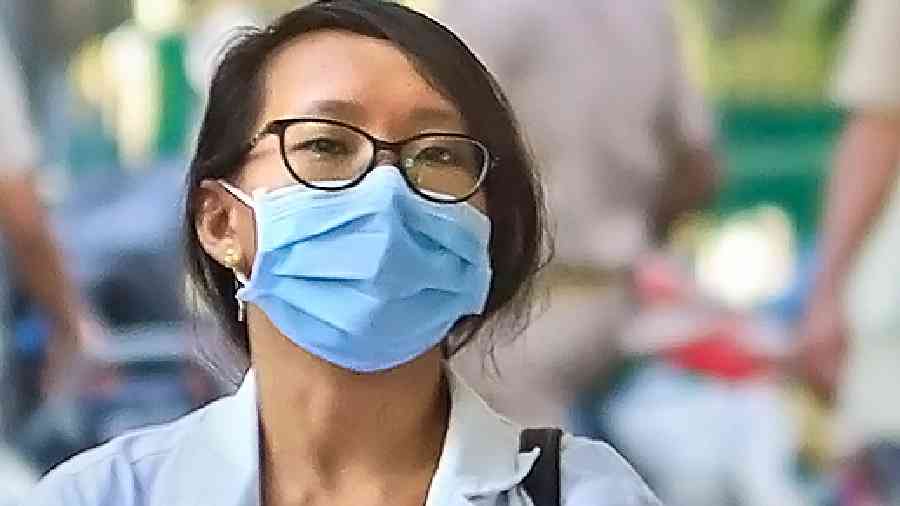The Union health ministry on Thursday cautioned about a rise in weekly Covid-19 infections in six states in southern and western India, calling for enhanced surveillance, viral genome sequencing and efforts to detect and control any localised outbreaks.
The ministry, citing the rising counts, has asked Gujarat, Karnataka, Kerala, Maharashtra, Telangana and Tamil Nadu to monitor new and emerging clusters of Covid-19 cases and take pre-emptive action in any areas of concern to control the spread of infection.
Scientists suspect the observed rise in infections is likely driven by a new coronavirus variant called XBB.1.16 identified in India earlier this month by Rajesh Karyakarte, professor of microbiology, and his team at the B.J. Medical College, Pune.
“There is very little information at this point in time on the clinical outcomes from XBB.1.16 — not enough patients, not enough data,” said Vinod Scaria, a scientist at the Institute of Genomics and Integrative Biology, New Delhi.
“We need to wait for more evidence to emerge,” he said.
A preliminary analysis of less than 30 patients in India infected with XBB.1.16 has found that most had mild symptoms and all recovered from the infection, although one of the patients required oxygen for a short period, a researcher familiar with the results told The Telegraph.
The weekly new Covid-19 cases in the six states have increased steadily over the past three weeks. Gujarat, for instance, had nine cases in the week ending on February 21 but 279 cases in the week ending on March 15.
Weekly new infections over that period doubled in Karnataka (234 to 604) and Kerala (247 to 579) and increased to near or over five-fold in Tamil Nadu (53 to 258), Maharashtra (123 to 668), Telangana (44 to 267).
Health secretary Rajesh Bhushan has asked each state to examine Covid-19 infections at the district and subdistrict levels, monitor influenza-like illness and severe acute respiratory infections, sequence genomes from health facilities and all local clusters of cases.
The nationwide count of weekly new Covid-19 cases increased 56 per cent over the past week, from 2,082 in the week ending on March 8 to 3,264 in the week ending on March 8 but health authorities have not reported any increase in disease severity or rising deaths.
“Most Covid-19 cases remain mildly symptomatic or asymptomatic, and hospital admissions remain near the minimum — but these are early signals, we’ll have to wait a week or two to see if anything changes,” said Rahul Pandit, director of critical care at Fortis Hospitals, Mumbai, and member of Maharashtra’s Covid-19 task force.
India’s Covid-19 epidemic has for more than a year been marked by mild illness and low hospitalisation rates which medical experts have attributed to protection through immunity gained from vaccination and natural infections acquired during the country’s three Covid-19 waves.
Scientists tracking changes in the Covid-19 viral genomes have said any new coronavirus variant would need to be substantially different from the currently circulating variants to cause another severe Covid-19 wave in the country.












